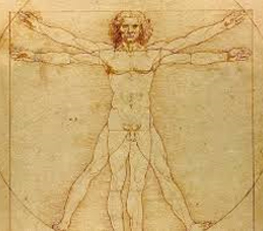(18-04-2018) Vitamin D requires magnesium: You can take supplements but still stay deficient in D if your magnesium levels are too low
(Natural News) Even if you’re taking supplements daily, keep in mind that your vitamin D and magnesium levels are closely linked.
According to a recent review, at least50 percent of Americans store inactive vitamin Din their bodies. This occurs since the vitamin can’t be metabolized if an individual’s magnesium levels are low.
Dr. Mohammed S. Razzaque, a professor of pathology atLake Erie College of Osteopathic Medicineand a co-author of the study, explained that most people who take vitamin D supplements don’t know how it’s metabolized. He warns that unless you’re also taking magnesium supplements, “vitamin D is not really useful or safe.†(Related:Know the Importance of Taking Enough Magnesium with Your Vitamin D.)
The review, which was published inThe Journal of the American Osteopathic Association, revealed that when an individual takes vitamin D supplements, they can increase their calcium and phosphate levels, regardless if they’re still vitamin D deficient. However, this means that they may experience vascular calcification if their magnesium levels aren’t high enough to avoid the dangerous complication.
Per the review, people with high magnesium levels only require a lower dose of vitamin D supplements to reach adequate levels of vitamin D. Dr. Razzaque advised that magnesium can also minimize osteoporosis, and this will help to reduce the risk of bone fracture that may be due to a vitamin D deficiency.
Low levels in either of these nutrients are believed to be linked to several disorders like cardiovascular diseases, metabolic syndrome, and skeletal deformities.
The recommended daily allowance for magnesium is 420 milligrams (mg) for males and 320 mg for females. However, the standard diet in the U.S. is only at least 50 percent of that amount. Around half of the country’s total population is consuming a diet with less than ideal levels of magnesium.
The researchers posited that magnesium consumption from natural foods had gone down in the last few decades because of “industrialized agriculture and changes in dietary habits.†Magnesium levels are low in populations that regularly eat processed foods that are high in harmful fat, phosphate, refined grains, and sugar.
Dr. Razzaque concluded, “By consuming an optimal amount of magnesium, one may be able to lower the risks of vitamin D deficiency, and reduce the dependency on vitamin D supplements.â€
Healthy sources of magnesium
To ensure that your magnesium levels are high enough to avoid health complications, try toconsume more of the magnesium-rich foods below:
Avocados– A nutritious fruit, avocado contains magnesium. The fruit is also rich in B-vitamins, potassium, and vitamin K. It is also high in fiber and “heart-healthy monounsaturated fat.â€
Dark chocolate– Dark chocolate is full of magnesium, and it also contains copper, iron, and manganese. Additionally, it has prebiotic fiber that will feed the good bacteria in your gut. Dark chocolate also contains antioxidants, which are nutrients that neutralize free radicals (harmful molecules that may damage your cells and make you sick).
Legumes– Legumes include plants rich in nutrients like beans, chickpeas, lentils, peas, and soybeans. They also contain iron, magnesium, potassium, and protein.
Nuts– Nuts like almonds, cashews, and Brazil nuts are full of magnesium. Some kinds of nuts are rich in fiber and monounsaturated fat, which can help improve blood sugar and cholesterol levels in people with diabetes.
Seeds– A lot of seeds, such as chia, flax, and pumpkin seeds, contain magnesium. Seeds are also full of antioxidants, fiber, iron, monounsaturated fat, and omega-3 fatty acids.
Tofu– Rich in protein, tofu is made from soybean milk that is processed into soft white curds or “bean curd.†Tofu contains calcium, iron, magnesium, manganese, protein, and selenium.
You can read more articles about magnesium, vitamin D, and how nutrients like these can keep you healthy atPrevention.news.
Sources include:
ScienceDaily.com
Healthline.com
News
In evidenza
 "L'informazione presente nel sito serve a migliorare, e non a sostituire, il rapporto medico-paziente."
"L'informazione presente nel sito serve a migliorare, e non a sostituire, il rapporto medico-paziente."
Per coloro che hanno problemi di salute si consiglia di consultare sempre il proprio medico curante.

Informazioni utili
-
Ricette a zona
-
Tabelle nutrizionali
-
Tabella composizione corporea
-
ABC della nutrizione






